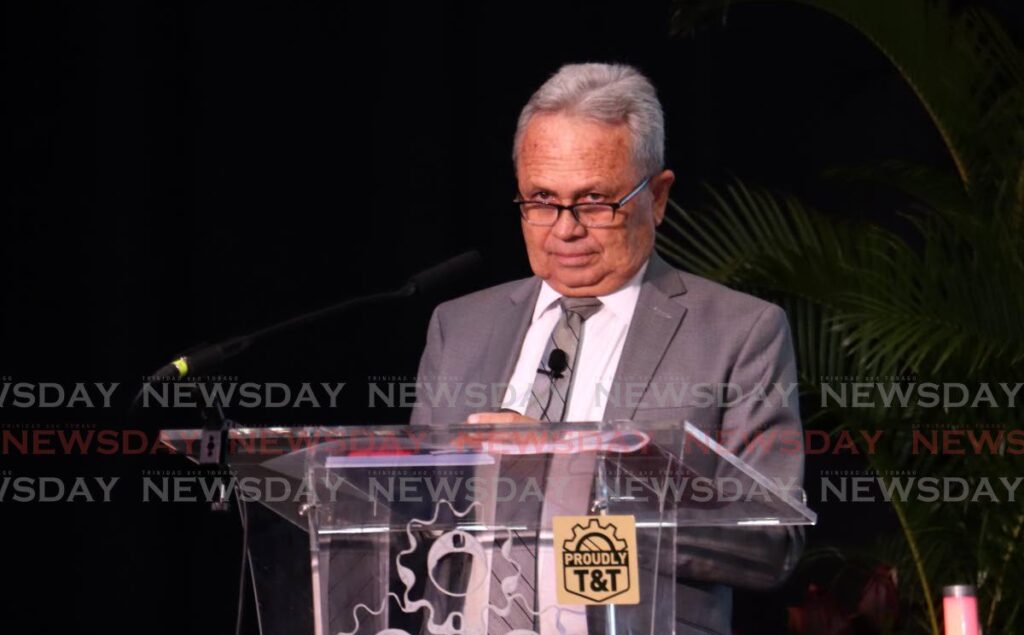Finance Ministry reviews Eximbank forex window

MINISTER OF FINANCE Colm Imbert has said the special Eximbank window created to give businesses access to foreign exchange for essential imports during the covid19 is now under review, in response to reports in the media of a lack of access to the funds.
In a post on X (formerly Twitter) on October 27, Imbert said, “During covid, we created a special window at the Eximbank to provide USD for essential imports, such as food and medicine. Covid19 is over, so we are reviewing the feasibility of that forex window. The need for a review cannot be too difficult a concept for the *newspaper named* to grasp.”
The newspaper reported that several businessmen were crying out for forex to import essential goods such as potatoes, rice, onions, garlic, oil, sugar, salt fish, smoked herring, pigtail, peas and beans. In the article the businessmen claimed that the shortage in access to forex would soon lead to shortages in food.
In April 2020 Cabinet approved the establishment of a special foreign exchange window through Eximbank, providing US$75 million – US$25 million a month for three months – to established importers.
In 2021, at a virtual meeting with members of the Public Accounts Enterprise Committee (PAEC), Eximbank chief executive officer (CEO) Navin Dookeran said the facility was reopened in October-December 2020, totalling more than US$150 million. He said 69 companies participated in the programme.
During the 2024/2025 budget read in Parliament in September, Imbert said the manufacturing sector was allocated a total of US$983 million since the window was opened in 2018.
“This manufacturing forex window has supported companies that have generated over $8 billion in exports from 2021-2023,” Imbert said during his more-than-five-hour-long budget presentation.
He added that the programme on its own has become a net forex earner for the country. Imbert said,
“Further, Madam Speaker and very importantly, the Eximbank has confirmed that every year since 2021, the total US dollar deposits into local bank accounts of manufacturers have consistently exceeded the amount of forex allocated to the sector by at least $100 million a year.”
On Sunday, in response to questions sent to the Newsday, Dookeran said all clients under the Eximbank forex facility received allocations for essential items for September.
TT Chamber: We need entities like Eximbank
President of the TT Chamber of Commerce Kiran Maharaj told Newsday that the chamber and some members were alerted beforehand of the review of the Eximbank facility, but a specific time when the review would be over was not given. She added that members of the chamber also called on the issue.
“They require forex in a timely manner to ensure that containers of goods, including essential items, can get to TT to fulfil the regular demand,” she said. Suppliers will not send shipments unless they get paid.
She said the chamber sent a formal letter of request for attention to the matter and she also spoke briefly with the minister.
“This was about ten days ago,” she said. “He said he understood the necessity but also pointed to the fact that the list had to be revised. This was about ten days ago. I suspect that the minister and his team are in the process of reviewing and revising this list.
“My understanding is that the current essentials list under Eximbank includes items which were added during covid19 and some of these are no longer deemed essentials.”
She said TT needs entities like Eximbank, as they are instrumental to bridging forex flows. Other options are either limited or may not be able to meet the local demand.
“While we have members and businesses who produce some essential goods, they can neither meet the local demand nor consumer choices. Importing basic food items and medicine is the only option at this time,” she said. “The commercial banks are the only other option, and their forex supply is also limited. There are limited work-arounds and our businesses have already negotiated the best terms with their suppliers, who are aware of the circumstances but who also have to run their own businesses and require cash.”
She said there was no quick way of generating foreign currency. As a country, TT must be focused on priortising key areas and ensuring the infrastructure is available to make the areas sustainable. She said increasing exports in agriculture, technology, services (nearshoring) and manufacturing as well as reducing the nation’s high import food bill – last estimated at around $7.2 billion in 2023 – will also help conserve foreign reserves.
She said while the public and private sector are working together to attract foreign direct investment with the introduction of special economic zones and through the establishment of the trade and investment promotion agency, monetisation of industries such as the creative and tourism sector can unlock hidden potential for earning forex.
“We have a lot to offer that is not being presented to the world. We cannot expect these sectors to flourish overnight. We must lay the foundation now so we can see the returns in the next three-five years,” she said.
The monthly food and beverage report from the Central Statistical Office (CSO) said the index for food and non-alcoholic beverages increased from 149.2 price points in August – 150.2 in September.
The increase was attributed to upward movement in the prices of fresh whole chicken, cucumbers, carrots, parboiled rice, oranges, Irish potatoes, bodi, cabbage, ripe bananas and cheddar cheese.
But there were decreases in the prices of ochroes, onions, white flour, hot peppers, pumpkin, garlic, green sweet peppers, chocolate malt beverages, eggs and eddoes.
Information from Central Bank indicates that the net official reserves in US currency stands at $5.6 billion, with eight months’ import cover.

Comments
"Finance Ministry reviews Eximbank forex window"